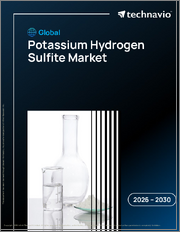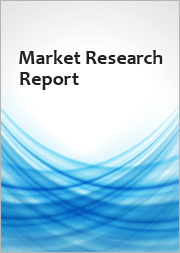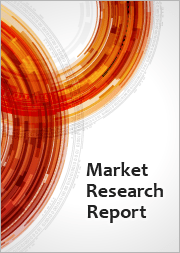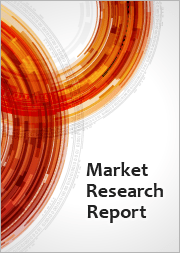
|
시장보고서
상품코드
1751433
칼리 시장 규모, 점유율, 동향 분석 보고서 : 제품별, 최종 용도별, 지역별, 부문 예측(2025-2032년)Potash Market Size, Share & Trends Analysis Report By Product (Potassium Sulphate, Potassium Nitrate), By End Use (FCC Catalyst, Other End Uses), By Region (North America, Europe, Asia Pacific, Latin America), And Segment Forecasts, 2025 - 2032 |
||||||
칼리 시장의 성장과 동향
Grand View Research, Inc.의 최신 보고서에 따르면, 세계 칼리 시장 규모는 2032년 935억 120만 달러에 달할 것으로 예상되며, 2025-2032년 연평균 5.3% 성장할 것으로 예측됩니다. 그 배경에는 식량 수요 증가와 농지의 효율적인 이용이 있습니다. 소비자들이 더 건강한 식품을 찾으면서 과일, 채소, 특수 작물 등 고부가가치 작물에 대한 수요가 급증하고 칼리에 대한 수요도 증가하고 있습니다. 또한, 최근 정밀농업 기술의 도입이 점점 더 확산되고 있습니다. 정밀농업은 토양 검사, 표적 영양소 관리 등 첨단 기술과 데이터 기반 접근법을 사용하여 충분한 정보에 기반한 시비 결정을 내리는 것을 말합니다.
농업 종사자들은 밭의 변동성과 작물의 요구 사항에 따라 정확하고 장소에 맞는 시비 방법을 도입하고 있습니다. 이러한 추세는 자원 활용의 최적화, 작물 성적 향상, 농작업의 전반적인 효율성 강화로 이어질 수 있습니다. 그 결과, 농부들이 작물 수확량을 극대화하고 영양분 관리를 최적화하기 위해 노력하면서 정밀농업의 채택이 제품 수요 증가에 기여하고 있습니다. 식생활 선호도 변화, 소비자 인식의 변화, 정밀 농업 기술의 채택은 시장 성장에 큰 영향을 미치고 있습니다. 고부가가치 작물에 대한 수요 증가와 작물의 생산성과 품질 최적화에 대한 관심이 높아지면서 필수 영양소로서의 제품 수요를 촉진하고 있습니다.
이러한 추세는 지속 가능하고 효율적인 농업을 지원하는 동시에 현대 소비자의 진화하는 요구에 부응한다는 점에서 이 제품의 중요성을 강조하고 있습니다. 그러나 가격 변동은 여전히 생산 능력, 세계 수요 변동, 환율의 영향을 받는 중요한 요인으로 작용하고 있습니다. 또한, 운송 및 물류 문제를 포함한 공급망 제약은 제품의 가용성과 가격에 영향을 미칠 수 있습니다. 이러한 요인들은 시장 성장에 걸림돌이 될 수 있으며, 산업 진입자들이 진화하는 수요에 대응하는 데 어려움을 겪을 수 있습니다. 아시아태평양은 높은 인구, 토지 비옥도, 식용 곡물 수요 증가, 비료로 인한 토지 활용으로 인해 2023-2032년 연평균 5.7%로 가장 빠르게 성장하는 지역이 될 것으로 예측됩니다.
칼리 시장 보고서 하이라이트
- 세계 인구 증가로 식량 수요가 증가함에 따라 농업 생산성 향상이 요구되고 있습니다. 칼리의 주요 공급원인 칼리은 작물의 수확량, 수분 보유력, 병해충 저항성 향상에 도움이 됩니다.
- 염화칼리 제품 부문은 2024년 53.0%의 매출 점유율로 시장을 지배했습니다. 이는 농업 활동 증가에 기인합니다. 염화칼리은 일반적으로 칼리 무리에이트(MOP)로 알려져 있습니다.
- 농업용 최종 용도 부문은 2024년 93.1%의 매출 점유율로 시장을 장악했습니다. 이러한 성장은 농작물 성장을 개선하고 수확량을 극대화하며 세계 식량 안보를 보장하는 농업 산업의 능력에 기인합니다.
- 이 수요는 콩, 옥수수, 밀, 면화, 각종 채소 및 과일과 같은 작물 재배에 특화된 주요 농업 중심 지역에서 특히 높습니다.
- 아시아태평양은 2024년 38.4% 이상의 매출 점유율로 시장을 지배했습니다. 이는 중국과 인도 등 주요 국가의 제품 수요 증가에 기인합니다.
목차
제1장 조사 방법과 범위
제2장 주요 요약
제3장 시장 변수, 동향, 범위
- 세계의 칼리 시장 전망
- 밸류체인 분석
- 원료 전망
- 기타 최종 용도/제품 전망
- 유통 채널 분석
- 가격 동향 분석
- 가격에 영향을 미치는 요인
- 규제 프레임워크
- 표준과 컴플라이언스
- 시장 역학
- 시장 성장 촉진요인 분석
- 시장 성장 억제요인 분석
- 시장이 해결해야 할 과제 분석
- 시장 기회 분석
- Porter의 Five Forces 분석
- 공급 기업의 교섭력
- 바이어의 교섭력
- 대체 위협
- 신규 진출업체의 위협
- 경쟁 기업간 경쟁 관계
- PESTLE 분석
- 정치
- 경제
- 사회
- 제품
- 환경
- 법률
제4장 칼리 시장 : 제품별, 추정, 동향 분석
- 칼리 시장 : 제품 변동 분석, 2023년 및 2030년
- 염화칼리
- 황산칼리
- 질산칼리
- 기타
제5장 칼리 시장 : 최종 용도별, 추정, 동향 분석
- 칼리 시장 : 최종 용도 변동 분석, 2023년 및 2030년
- 농업
- 기타
제6장 칼리 시장 : 지역별, 추정, 동향 분석
- 지역 분석, 2023년 및 2030년
- 북미
- 제품별, 2018-2032년
- 최종 용도별, 2018-2032년
- 미국
- 캐나다
- 멕시코
- 유럽
- 제품별, 2018-2032년
- 최종 용도별, 2018-2032년
- 독일
- 영국
- 프랑스
- 이탈리아
- 스페인
- 아시아태평양
- 제품별, 2018-2032년
- 최종 용도별, 2018-2032년
- 중국
- 인도
- 일본
- 한국
- 라틴아메리카
- 제품별, 2018-2032년
- 최종 용도별, 2018-2032년
- 브라질
- 아르헨티나
- 중동 및 아프리카
- 제품별, 2018-2032년
- 최종 용도별, 2018-2032년
- 사우디아라비아
- 남아프리카공화국
제7장 경쟁 구도
- 주요 시장 진출기업 최근 동향
- 기업 분류
- 기업 히트맵 분석
- 2024년 기업의 시장 포지셔닝 분석
- 전략 매핑
- 기업 개요/상장기업
- JSC Belaruskali
- Compass Minerals Intl. Ltd.
- Mosaic Company
- Uralkali
- Rio Tinto Ltd.
- BHP Billiton Ltd.
- Eurochem
- Red Metal Ltd.
- Encanto Potash Corp.(EPC)
- Intrepid Potash Inc.
- K+S Aktiengesellschaft
- Nutrien
Potash Market Growth & Trends:
The global potash market size is expected to reach USD 93,501.2 million in 2032 and is anticipated to grow at a CAGR of 5.3% from 2025 to 2032, according to a new report by Grand View Research, Inc. This is attributed to the increasing demand for food and efficient usage of agricultural land. As consumers seek healthier options, there has been a surge in demand for high-value crops like fruits, vegetables, and specialty crops, boosting the demand for potash. Furthermore, the adoption of precision agriculture techniques has become increasingly prevalent in recent years. Precision agriculture involves using advanced technologies and data-driven approaches, such as soil testing and targeted nutrient management, to make informed decisions about fertilizer application.
Farmers are embracing precise and site-specific methods for applying fertilizers, based on field variability and crop requirements. This trend makes way for optimized resource utilization, improved crop performance, and enhanced overall efficiency in agricultural practices. Consequently, adopting precision agriculture methods has contributed to the rising product demand as farmers strive to maximize crop yields and optimize nutrient management. Changing dietary preferences, growing consumer awareness, and adoption of precision agriculture techniques have significantly impacted the market growth. The increased demand for high-value crops and the emphasis on optimizing crop productivity and quality have fueled the product demand as an essential nutrient.
These trends underscore the product's importance in supporting sustainable and efficient agricultural practices while meeting the evolving needs of modern consumers. However, price volatility remains a significant factor influenced by production capacities, global demand fluctuations, and currency exchange rates. In addition, supply chain constraints, including transportation and logistics challenges, can impact the product availability and pricing. These factors present obstacles to market growth and present challenges to industry players while meeting the evolving demands. Asia Pacific will emerge as the fastest-growing region at a CAGR of 5.7% from 2023 to 2032 due to high population, land fertility, increased demand for food grains, and effective use of land through fertilizer.
Potash Market Report Highlights:
- The growing global population is increasing the demand for food, which drives the need for higher agricultural productivity. Potash, as a key source of potassium, helps improve crop yield, water retention, and resistance to pests and diseases
- The potassium chloride product segment dominated the market with a revenue share of 53.0% in 2024. This is attributed to the rise in agricultural activities. Potassium chloride is commonly known as Muriate of Potash (MOP)
- The agriculture end use segment dominated the market with a revenue share of 93.1% in 2024. This growth is attributed to the agricultural industry's ability to improve crop growth, maximize yields, and ensure global food security
- This demand is exceptionally high in key agriculture-focused regions specializing in cultivating crops, such as soybeans, corn, wheat, cotton, and various vegetables and fruits.
- The Asia Pacific region dominated the market with a revenue share of more than 38.4% in 2024. This is attributable to the rising demand for products in leading countries, namely China and India.
Table of Contents
Chapter 1. Methodology and Scope
- 1.1. Market Segmentation & Scope
- 1.2. Market Definition
- 1.3. Information Procurement
- 1.3.1. Information Analysis
- 1.3.2. Market Formulation & Data Visualization
- 1.3.3. Data Validation & Publishing
- 1.4. Research Scope and Assumptions
- 1.4.1. List of Data Sources
Chapter 2. Executive Summary
- 2.1. Market Snapshot
- 2.2. Segmental Outlook
- 2.3. Competitive Outlook
Chapter 3. Market Variables, Trends, and Scope
- 3.1. Global Potash Market Outlook
- 3.2. Value Chain Analysis
- 3.2.1. Raw Material Outlook
- 3.2.2. Other End Uses/Product Outlook
- 3.2.3. Sales Channel Analysis
- 3.3. Price Trend Analysis
- 3.3.1. Factors Influencing Prices
- 3.4. Regulatory Framework
- 3.4.1. Standards & Compliances
- 3.5. Market Dynamics
- 3.5.1. Market Driver Analysis
- 3.5.2. Market Restraint Analysis
- 3.5.3. Market Challenges Analysis
- 3.5.4. Market Opportunity Analysis
- 3.6. Porter's Five Forces Analysis
- 3.6.1. Bargaining Power of Suppliers
- 3.6.2. Bargaining Power of Buyers
- 3.6.3. Threat of Substitution
- 3.6.4. Threat of New Entrants
- 3.6.5. Competitive Rivalry
- 3.7. PESTLE Analysis
- 3.7.1. Political
- 3.7.2. Economic
- 3.7.3. Social Landscape
- 3.7.4. Product
- 3.7.5. Environmental
- 3.7.6. Legal
Chapter 4. Potash Market: Product Estimates & Trend Analysis
- 4.1. Potash Market: Product Movement Analysis, 2023 & 2030
- 4.2. Potassium Chloride
- 4.2.1. Market estimates and forecasts, 2018 - 2032 (Kilotons) (USD Million)
- 4.3. Potassium Sulphate
- 4.3.1. Market estimates and forecasts, 2018 - 2032 (Kilotons) (USD Million)
- 4.4. Potassium Nitrate
- 4.4.1. Market estimates and forecasts, 2018 - 2032 (Kilotons) (USD Million)
- 4.5. Other Products
- 4.5.1. Market estimates and forecasts, 2018 - 2032 (Kilotons) (USD Million)
Chapter 5. Potash Market: End Use Estimates & Trend Analysis
- 5.1. Potash Market: End Use Movement Analysis, 2023 & 2030
- 5.2. Agriculture
- 5.2.1. Market estimates and forecasts, 2018 - 2032 (Kilotons) (USD Million)
- 5.3. Other End Uses
- 5.3.1. Market estimates and forecasts, 2018 - 2032 (Kilotons) (USD Million)
Chapter 6. Potash Market: Regional Estimates & Trend Analysis
- 6.1. Regional Analysis, 2023 & 2030
- 6.2. North America
- 6.2.1. Market estimates and forecasts, 2018 - 2032 (Kilotons) (USD Million)
- 6.2.2. Market estimates and forecasts, by product, 2018 - 2032 (Kilotons) (USD Million)
- 6.2.3. Market estimates and forecasts, by end use, 2018 - 2032 (Kilotons) (USD Million)
- 6.2.4. U.S.
- 6.2.4.1. Market estimates and forecasts, 2018 - 2032 (Kilotons) (USD Million)
- 6.2.4.2. Market estimates and forecasts, by product, 2018 - 2032 (Kilotons) (USD Million)
- 6.2.4.3. Market estimates and forecasts, by end use, 2018 - 2032 (Kilotons) (USD Million)
- 6.2.5. Canada
- 6.2.5.1. Market estimates and forecasts, 2018 - 2032 (Kilotons) (USD Million)
- 6.2.5.2. Market estimates and forecasts, by product, 2018 - 2032 (Kilotons) (USD Million)
- 6.2.5.3. Market estimates and forecasts, by end use, 2018 - 2032 (Kilotons) (USD Million)
- 6.2.6. Mexico
- 6.2.6.1. Market estimates and forecasts, 2018 - 2032 (Kilotons) (USD Million)
- 6.2.6.2. Market estimates and forecasts, by product, 2018 - 2032 (Kilotons) (USD Million)
- 6.2.6.3. Market estimates and forecasts, by end use, 2018 - 2032 (Kilotons) (USD Million)
- 6.3. Europe
- 6.3.1. Market estimates and forecasts, 2018 - 2032 (Kilotons) (USD Million)
- 6.3.2. Market estimates and forecasts, by product, 2018 - 2032 (Kilotons) (USD Million)
- 6.3.3. Market estimates and forecasts, by end use, 2018 - 2032 (Kilotons) (USD Million)
- 6.3.4. Germany
- 6.3.4.1. Market estimates and forecasts, 2018 - 2032 (Kilotons) (USD Million)
- 6.3.4.2. Market estimates and forecasts, by product, 2018 - 2032 (Kilotons) (USD Million)
- 6.3.4.3. Market estimates and forecasts, by end use, 2018 - 2032 (Kilotons) (USD Million)
- 6.3.5. UK
- 6.3.5.1. Market estimates and forecasts, 2018 - 2032 (Kilotons) (USD Million)
- 6.3.5.2. Market estimates and forecasts, by product, 2018 - 2032 (Kilotons) (USD Million)
- 6.3.5.3. Market estimates and forecasts, by end use, 2018 - 2032 (Kilotons) (USD Million)
- 6.3.6. France
- 6.3.6.1. Market estimates and forecasts, 2018 - 2032 (Kilotons) (USD Million)
- 6.3.6.2. Market estimates and forecasts, by product, 2018 - 2032 (Kilotons) (USD Million)
- 6.3.6.3. Market estimates and forecasts, by end use, 2018 - 2032 (Kilotons) (USD Million)
- 6.3.7. Italy
- 6.3.7.1. Market estimates and forecasts, 2018 - 2032 (Kilotons) (USD Million)
- 6.3.7.2. Market estimates and forecasts, by product, 2018 - 2032 (Kilotons) (USD Million)
- 6.3.7.3. Market estimates and forecasts, by end use, 2018 - 2032 (Kilotons) (USD Million)
- 6.3.8. Spain
- 6.3.8.1. Market estimates and forecasts, 2018 - 2032 (Kilotons) (USD Million)
- 6.3.8.2. Market estimates and forecasts, by product, 2018 - 2032 (Kilotons) (USD Million)
- 6.3.8.3. Market estimates and forecasts, by end use, 2018 - 2032 (Kilotons) (USD Million)
- 6.4. Asia Pacific
- 6.4.1. Market estimates and forecasts, 2018 - 2032 (Kilotons) (USD Million)
- 6.4.2. Market estimates and forecasts, by product, 2018 - 2032 (Kilotons) (USD Million)
- 6.4.3. Market estimates and forecasts, by end use, 2018 - 2032 (Kilotons) (USD Million)
- 6.4.4. China
- 6.4.4.1. Market estimates and forecasts, 2018 - 2032 (Kilotons) (USD Million)
- 6.4.4.2. Market estimates and forecasts, by product, 2018 - 2032 (Kilotons) (USD Million)
- 6.4.4.3. Market estimates and forecasts, by end use, 2018 - 2032 (Kilotons) (USD Million)
- 6.4.5. India
- 6.4.5.1. Market estimates and forecasts, 2018 - 2032 (Kilotons) (USD Million)
- 6.4.5.2. Market estimates and forecasts, by product, 2018 - 2032 (Kilotons) (USD Million)
- 6.4.5.3. Market estimates and forecasts, by end use, 2018 - 2032 (Kilotons) (USD Million)
- 6.4.6. Japan
- 6.4.6.1. Market estimates and forecasts, 2018 - 2032 (Kilotons) (USD Million)
- 6.4.6.2. Market estimates and forecasts, by product, 2018 - 2032 (Kilotons) (USD Million)
- 6.4.6.3. Market estimates and forecasts, by end use, 2018 - 2032 (Kilotons) (USD Million)
- 6.4.7. South Korea
- 6.4.7.1. Market estimates and forecasts, 2018 - 2032 (Kilotons) (USD Million)
- 6.4.7.2. Market estimates and forecasts, by product, 2018 - 2032 (Kilotons) (USD Million)
- 6.4.7.3. Market estimates and forecasts, by end use, 2018 - 2032 (Kilotons) (USD Million)
- 6.5. Latin America
- 6.5.1. Market estimates and forecasts, 2018 - 2032 (Kilotons) (USD Million)
- 6.5.2. Market estimates and forecasts, by product, 2018 - 2032 (Kilotons) (USD Million)
- 6.5.3. Market estimates and forecasts, by end use, 2018 - 2032 (Kilotons) (USD Million)
- 6.5.4. Brazil
- 6.5.4.1. Market estimates and forecasts, 2018 - 2032 (Kilotons) (USD Million)
- 6.5.4.2. Market estimates and forecasts, by product, 2018 - 2032 (Kilotons) (USD Million)
- 6.5.4.3. Market estimates and forecasts, by end use, 2018 - 2032 (Kilotons) (USD Million)
- 6.5.5. Argentina
- 6.5.5.1. Market estimates and forecasts, 2018 - 2032 (Kilotons) (USD Million)
- 6.5.5.2. Market estimates and forecasts, by product, 2018 - 2032 (Kilotons) (USD Million)
- 6.5.5.3. Market estimates and forecasts, by end use, 2018 - 2032 (Kilotons) (USD Million)
- 6.6. Middle East & Africa
- 6.6.1. Market estimates and forecasts, 2018 - 2032 (Kilotons) (USD Million)
- 6.6.2. Market estimates and forecasts, by product, 2018 - 2032 (Kilotons) (USD Million)
- 6.6.3. Market estimates and forecasts, by end use, 2018 - 2032 (Kilotons) (USD Million)
- 6.6.4. Saudi Arabia
- 6.6.4.1. Market estimates and forecasts, 2018 - 2032 (Kilotons) (USD Million)
- 6.6.4.2. Market estimates and forecasts, by product, 2018 - 2032 (Kilotons) (USD Million)
- 6.6.4.3. Market estimates and forecasts, by end use, 2018 - 2032 (Kilotons) (USD Million)
- 6.6.5. South Africa
- 6.6.5.1. Market estimates and forecasts, 2018 - 2032 (Kilotons) (USD Million)
- 6.6.5.2. Market estimates and forecasts, by product, 2018 - 2032 (Kilotons) (USD Million)
- 6.6.5.3. Market estimates and forecasts, by end use, 2018 - 2032 (Kilotons) (USD Million)
Chapter 7. Competitive Landscape
- 7.1. Recent Developments by Key Market Participants
- 7.2. Company Categorization
- 7.3. Company Heat Map Analysis
- 7.4. Company Market Positioning Analysis, 2024
- 7.5. Strategy Mapping
- 7.6. Company Profiles/Listing
- 7.6.1. JSC Belaruskali
- 7.6.1.1. Company Overview
- 7.6.1.2. Financial Performance
- 7.6.1.3. Product Benchmarking
- 7.6.2. Compass Minerals Intl. Ltd.
- 7.6.2.1. Company Overview
- 7.6.2.2. Financial Performance
- 7.6.2.3. Product Benchmarking
- 7.6.3. Mosaic Company
- 7.6.3.1. Company Overview
- 7.6.3.2. Financial Performance
- 7.6.3.3. Product Benchmarking
- 7.6.4. Uralkali
- 7.6.4.1. Company Overview
- 7.6.4.2. Financial Performance
- 7.6.4.3. Product Benchmarking
- 7.6.5. Rio Tinto Ltd.
- 7.6.5.1. Company Overview
- 7.6.5.2. Financial Performance
- 7.6.5.3. Product Benchmarking
- 7.6.6. BHP Billiton Ltd.
- 7.6.6.1. Company Overview
- 7.6.6.2. Financial Performance
- 7.6.6.3. Product Benchmarking
- 7.6.7. Eurochem
- 7.6.7.1. Company Overview
- 7.6.7.2. Financial Performance
- 7.6.7.3. Product Benchmarking
- 7.6.8. Red Metal Ltd.
- 7.6.8.1. Company Overview
- 7.6.8.2. Financial Performance
- 7.6.8.3. Product Benchmarking
- 7.6.9. Encanto Potash Corp. (EPC)
- 7.6.9.1. Company Overview
- 7.6.9.2. Financial Performance
- 7.6.9.3. Product Benchmarking
- 7.6.10. Intrepid Potash Inc.,
- 7.6.10.1. Company Overview
- 7.6.10.2. Financial Performance
- 7.6.10.3. Product Benchmarking
- 7.6.11. K+S Aktiengesellschaft
- 7.6.11.1. Company Overview
- 7.6.11.2. Financial Performance
- 7.6.11.3. Product Benchmarking
- 7.6.12. Nutrien
- 7.6.12.1. Company Overview
- 7.6.12.2. Financial Performance
- 7.6.12.3. Product Benchmarking
- 7.6.1. JSC Belaruskali
(주말 및 공휴일 제외)









